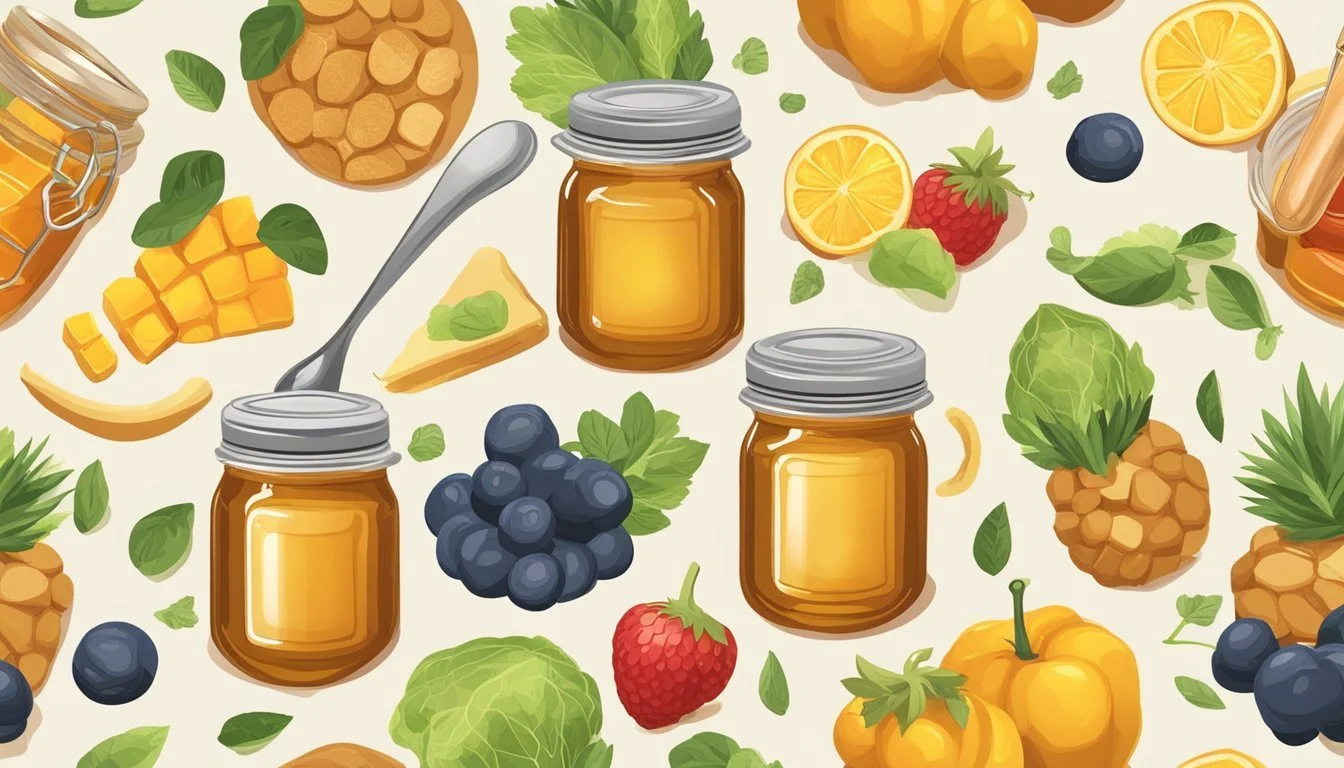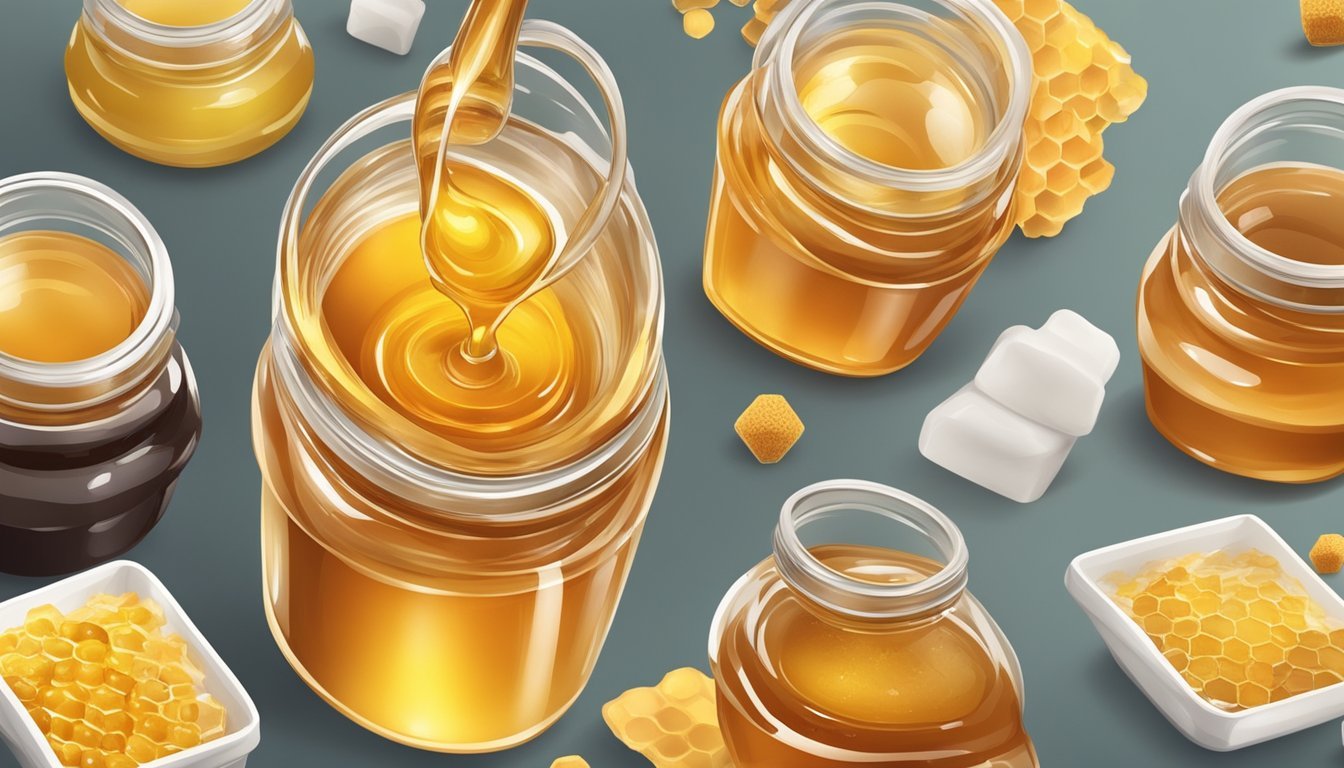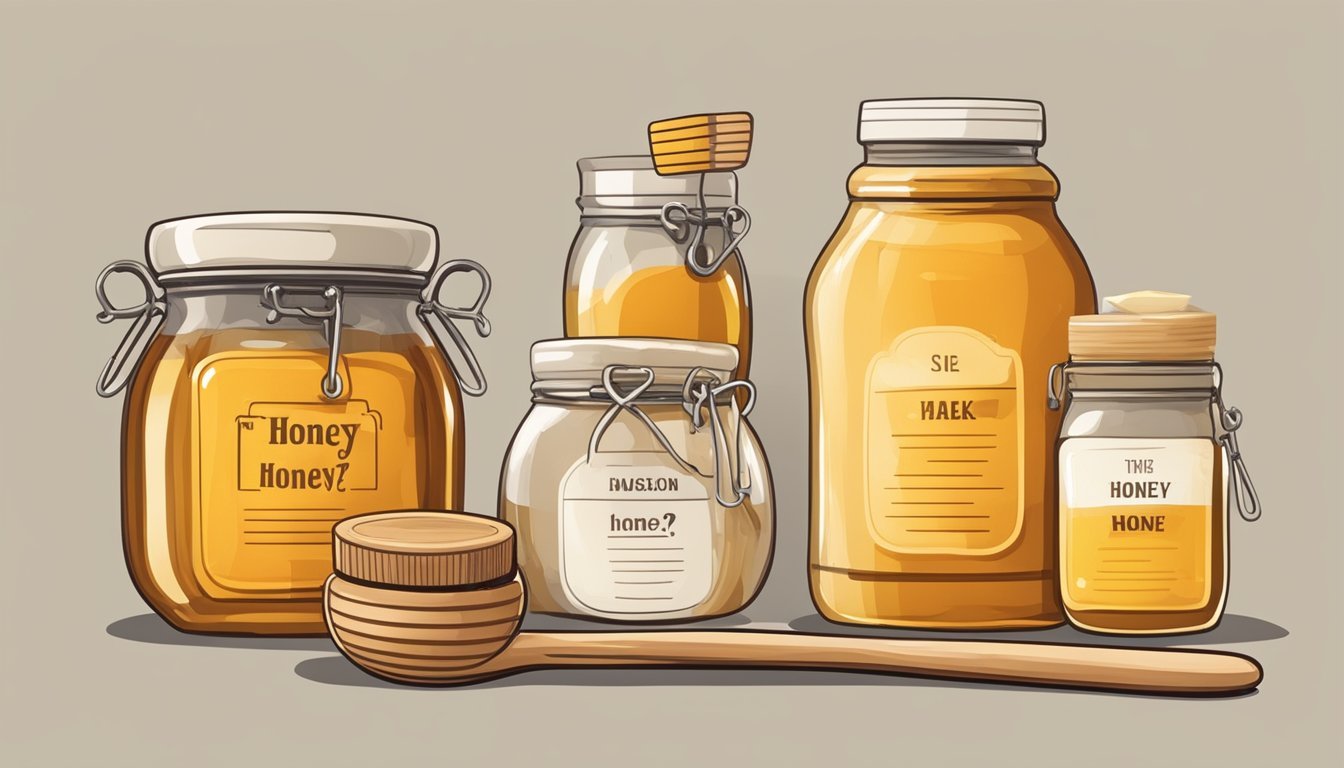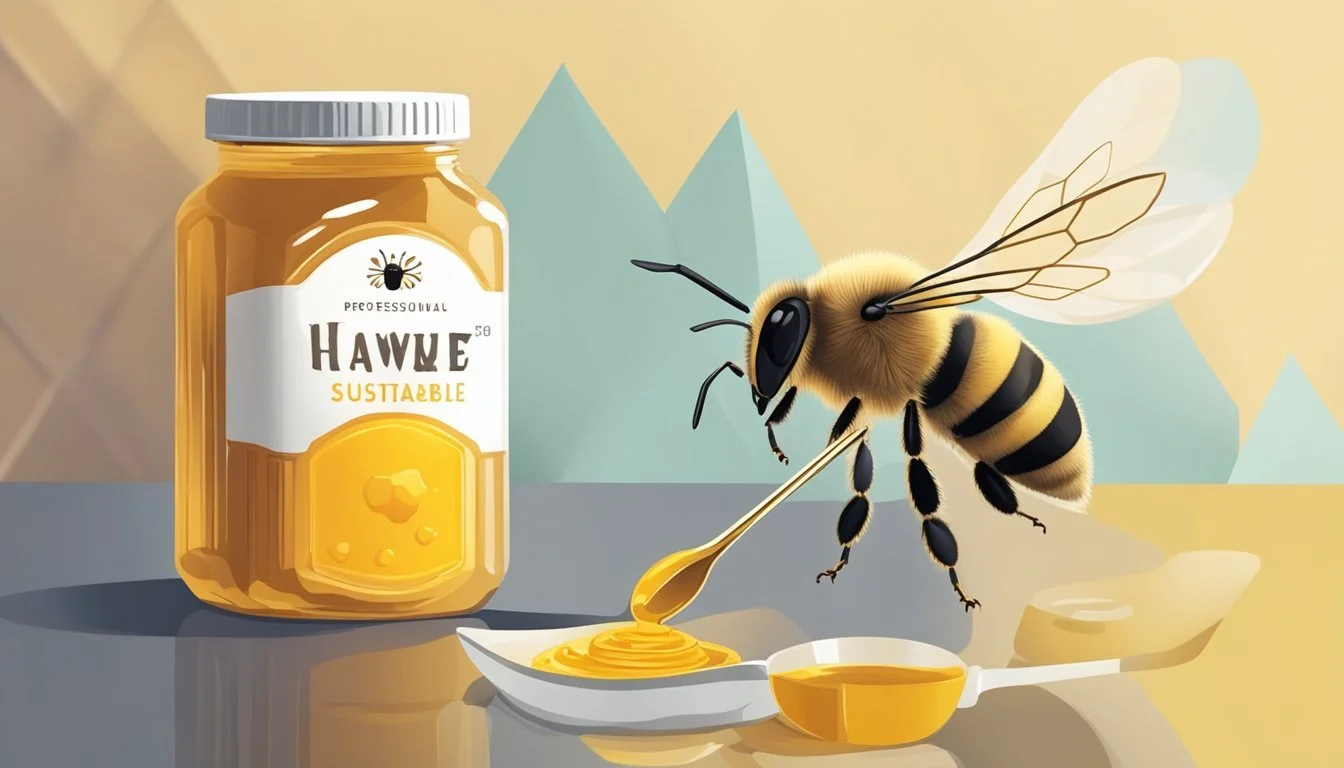How Much Honey Per Day Is Too Much?
Understanding Dietary Limits
Honey, a natural sweetener produced by bees, is favored for its delicious taste and potential health benefits. It contains a variety of nutrients such as amino acids, vitamins, minerals, iron, zinc, and antioxidants. The versatility of honey extends beyond its use as a sweetener; it is acknowledged for its role in traditional medicines and as a healthier alternative to processed sugar in various culinary applications.
Despite its nutritional value, the intake of honey should be moderated. Excessive consumption can lead to health issues such as weight gain and elevated blood sugar levels. Nutrition experts suggest that no more than six teaspoons of honey a day should be consumed by women and nine teaspoons by men. This equates to roughly 24 grams for women and 36 grams for men. Maintaining these consumption levels can help individuals reap the benefits of honey while minimizing the risk of negative health impacts.
Historical Use of Honey
Honey has been revered not only for its sweetness but also for its role in traditional medicine and cultural practices. Its uses span millennia, reflecting a rich tapestry of health beliefs and customs.
Traditional Medicine
In traditional medicine systems, honey is considered a potent remedy due to its healing properties. Ancient Egyptians, Greeks, and Romans used honey in salves to treat wounds and prevent infections due to its antibacterial properties. Ayurveda, the traditional system of medicine in India, has employed honey for various treatments over thousands of years, utilizing its supposed detoxifying effects when consumed in moderation.
Egyptians: Used honey in mummification, salves, and eye medicines
Greeks and Romans: Valued honey for its digestive and anti-inflammatory properties
Ayurveda: Prescribes honey for its warming and energizing characteristics, beneficial for colds and coughs
Cultural Significance
Honey holds profound cultural significance in various civilizations, symbolizing abundance, health, and prosperity. It appears in numerous religious texts, such as the Bible, Quran, and ancient scriptures, indicating the reverence humans have for this natural substance.
In Judaism, honey is associated with the Rosh Hashanah holiday, symbolizing a sweet new year.
The promise of a "land flowing with milk and honey" depicted in several religious texts metaphorically represents fertility and plenty.
Nutritional Composition
Honey's nutritional profile is unique due to its natural sugars, trace enzymes, minerals, vitamins, and bioactive compounds. It is predominantly composed of fructose and glucose, which account for its caloric content.
Vitamins and Minerals
Honey contains a variety of minerals such as iron, zinc, potassium, calcium, phosphorus, magnesium, and selenium. It also provides small amounts of vitamins like B6, thiamin, riboflavin, pantothenic acid, and niacin. The specific quantities of these micronutrients can vary based on the floral source of the honey.
Antioxidants and Bioactive Compounds
Honey is rich in bioactive compounds, including antioxidants such as flavonoids and polyphenols, which may contribute to its health benefits. These compounds help combat oxidative stress and inflammation. Honey also houses amino acids and enzymes which play roles in its functional properties. The antioxidant level can differ greatly depending on the floral source, with darker honeys typically having higher antioxidant properties.
Health Benefits
Honey is not just a sweetener; its consumption has been associated with a variety of health benefits. Regular intake of honey can contribute to managing blood sugar levels, supporting heart health, and serving as a natural remedy for wounds due to its antibacterial properties. However, moderation is key to avoid potential negative effects linked with excess sugar intake.
Blood Sugar Management
Consuming honey can lead to more stable blood sugar levels when compared to other types of sugar. Its lower glycemic index means it doesn’t spike blood sugar levels as quickly. Research suggests that honey might have a lesser impact on blood sugar balance, making it a preferable option for sweetening among those who have to watch their blood sugar levels. Despite this, individuals, particularly those with diabetes, should consume honey cautiously and under medical guidance to prevent adverse effects.
Heart Health
Honey has been linked with numerous heart-healthy benefits. Studies indicate that its antioxidants may help in improving blood flow, reducing blood pressure, and keeping cholesterol levels in check. Furthermore, its anti-inflammatory properties could lower the risk of heart disease. Inclusion of honey in a balanced diet may contribute to overall cardiovascular wellbeing.
Wound Healing Properties
One of honey’s most compelling uses is in the area of wound healing. Honey, particularly Manuka honey, exhibits strong antibacterial properties that can help prevent infection in cuts and burns. Its viscosity provides a protective barrier, while its antibacterial nature works to cleanse the wound and reduce inflammation, promoting faster healing. Clinical settings occasionally use medical-grade honey as a topical treatment for skin injuries and infections.
Risks and Concerns
In considering the daily consumption of honey, one must weigh the potential health risks associated with its sugar content, the rare but serious risk of infant botulism, and the potential for allergic reactions due to pollen content.
Sugar Content and Weight Gain
Honey, while natural, is high in sugars and can contribute to calorie intake if consumed in large amounts. A tablespoon of honey has approximately 64 calories and 17 grams of sugar. Excessive consumption can contribute to weight gain and related health issues. The American Heart Association suggests that women limit added sugars to 6 teaspoons per day and men to 9 teaspoons per day. Therefore, mindfulness towards honey's sugar content is essential, especially for individuals managing their weight or blood sugar levels.
Infant Botulism Risk
Infants under one year of age should not consume honey due to the risk of infant botulism, a rare but serious illness. The condition is caused by a toxin produced by Clostridium botulinum bacteria, which can be present in honey. In infants, their digestive systems are not mature enough to handle these spores, leading to potential botulism.
Allergic Reactions and Pollen Content
Honey contains small amounts of pollen, which can trigger allergic reactions in some individuals. People with severe allergies to pollen should be cautious when consuming honey, as it may contain pollen from the plants that could provoke their allergies. Reactions can vary from mild to severe, and those with known pollen allergies should consult with healthcare professionals before adding honey to their diets.
Usage Recommendations
It is imperative to consume honey in safe quantities, adhering to dietary guidelines for sugar intake to maintain a balanced diet.
Daily Intake Guidelines
The American Heart Association provides clear parameters for the daily consumption of added sugars. For women, no more than six teaspoons (25 grams) of added sugars are recommended, while for men, the number is slightly higher at nine teaspoons (38 grams). Honey, as a form of added sugar, falls within these guidelines, implying that one should not exceed these amounts to stay within the bounds of a healthy diet.
Registered dietitians echo this sentiment, often advising that honey be consumed as part of the allotted daily sugar intake, not in addition to it. The Mayo Clinic suggests that honey’s natural sugars have a place in the diet when consumed thoughtfully.
Best Practices for Consumption
To correctly incorporate honey into one’s diet:
Serving Sizes: A typical serving size should be one tablespoon or less.
Context of Consumption: It is beneficial to consider what other foods accompany honey and how honey complements the overall dietary pattern.
Variety: Choose different types of honey to enjoy a range of flavors and benefits, each type offering a unique taste and nutrient profile.
Following these best practices ensures that honey is consumed in a safe and enjoyable manner, contributing to the overall health and well-being without exceeding recommended limits.
Comparisons with Other Sweeteners
When considering the consumption of honey in comparison to other sweeteners, it is critical to examine its caloric content and impact on health side by side with alternatives like sugar and artificial sweeteners.
Honey vs Sugar
Honey is a natural sweetener that contains calories and sugars, but it also offers antioxidants and trace nutrients. When compared to sucrose, or table sugar, honey has more calories by weight; however, due to its higher sweetness per teaspoon, individuals may use less of it. Table sugar, on the other hand, is a refined form of natural sugar without any significant nutrients.
Honey: 21 calories per teaspoon
Sugar: 16 calories per teaspoon
Diabetes: Both honey and sugar can impact blood sugar levels, although honey has a slightly lower glycemic index.
Honey vs Artificial Sweeteners
Artificial sweeteners such as sorbitol and xylitol are considered sugar alcohols with fewer calories than honey. They are often recommended as an alternative for people with diabetes, due to their minimal effect on blood glucose levels. However, while these sweeteners have an "acceptable daily intake" guideline, they lack the natural antioxidants found in honey.
Calories Comparison:
Honey: 21 calories per teaspoon
Xylitol: Approximately 10 calories per teaspoon
Sorbitol: Approximately 10 calories per teaspoon
It's important to note that overconsumption of any added sugar or sweetener can contribute to health issues such as obesity and high blood pressure.
Types of Honey and Characteristics
Honey, made by bees from the nectar of flowers, varies widely in taste, color, and benefits. Each type of honey's unique characteristics depend on the flower source from which the bees gather nectar.
Flavor Profiles and Uses
Manuka Honey: Known for its strong, rich flavor and its therapeutic properties, Manuka honey is a monofloral variety originating from the nectar of the Manuka bush found in New Zealand. Often used for medicinal purposes, its antibacterial qualities are coveted worldwide.
Buckwheat Honey: With a robust and dark molasses-like flavor, buckwheat honey is a polyfloral variety, largely produced in the United States. It is high in antioxidants and commonly utilized not just for its unique flavor in culinary applications but for its health benefits as well.
Raw Honey: Unlike processed honey, raw honey maintains its natural flavors and nutrients because it is not heated or filtered. Its flavors and colors vary based on the flower nectar source, with a common theme of being fresher and more complex than its commercial counterparts.
Unique Varieties and Their Benefits
Clover Honey: As one of the most common and mild-flavored types of honey, clover honey's sweet and flowery taste makes it widely preferred for sweetening purposes. Its light color and milder flavor profile make it a versatile honey for various uses in cooking and baking.
Eucalyptus Honey: Harvested from the nectar of the eucalyptus plant, this variety of honey is noted for its potential to relieve coughs or cold symptoms due to its natural menthol effects and anti-inflammatory properties.
Overall, the quality of honey can be influenced by factors such as geography, bee species, and purity. Consumers often seek out varieties like Manuka for its superior health qualities, while more common types like clover are appreciated for their widespread culinary usage. Whether opting for the raw, unfiltered honey or the unique tastes of monofloral varieties, there is a spectrum of options for honey lovers to explore.
Environmental and Ethical Considerations
When discussing how much honey one should consume, it's crucial to consider the impact of honey production on the environment and ethics surrounding beekeeping. These factors are significant as they affect the sustainability of bees, which are vital pollinators for many flowering plants.
Beekeeping Practices
Modern beekeeping practices can vary significantly in their environmental and ethical implications. Some beekeepers prioritize bee health and the natural behaviors of honeybees, while others may focus on maximizing honey yields. Ethical beekeeping involves:
Sustainable harvesting that does not overexploit bee colonies.
Avoiding practices that cause undue stress or harm to the bees.
Disease management that supports long-term hive health.
These practices ensure that honeybees can continue their crucial role in pollinating flowering plants, thereby supporting broader ecological health.
Sustainability and Ecology
The relationship between honey production and ecology is tightly interwoven. Ecological considerations include:
Maintaining a balance where honeybees do not outcompete native pollinators.
Ensuring that beekeeping does not lead to habitat destruction or the spread of diseases to wild bee populations.
Recognizing the importance of honeybees in the pollination of various flowering plants, which is critical for ecosystem diversity and resilience.
Sustainable beekeeping practices not only protect the bees but also contribute to the preservation of nature and the multitude of services it provides.
Conclusion
Consuming honey brings a host of health benefits due to its nutritional content which includes antioxidants, vitamins, and minerals. It is a healthier alternative to refined sugars when used in moderation. The appropriate intake amount aligns with the recommendations from nutrition experts and health organizations.
Adult Men: Up to 9 teaspoons (36 grams) per day.
Adult Women and Children: Up to 6 teaspoons (24 grams) per day.
These guidelines aim to balance the health benefits of honey while preventing the potential drawbacks of excessive sugar intake.
Honey's health benefits are best utilized when it complements a balanced diet and healthy lifestyle. Overconsumption can lead to health issues related to high sugar intake, such as weight gain or increased blood sugar levels. It's crucial to remember that even natural sweeteners like honey should be consumed responsibly.
It's also important to consider individual health conditions. People with diabetes or those who must monitor their sugar intake should consult healthcare professionals before incorporating honey into their diets.
In conclusion, honey can be part of a healthy diet when consumed within the daily recommended limits. Individuals should enjoy honey for its taste and nutritional benefits while practicing moderation to maintain overall health and well-being.











